 The book stuffed with bookmarks on my bedside table is a really good one. Written by a highly respected, world-renowned author in his field who, disillusioned with mainstream publishers, has decided to go down the self-publishing route. Reading this book is an interesting experience… for several reasons… and not all of them good.
The book stuffed with bookmarks on my bedside table is a really good one. Written by a highly respected, world-renowned author in his field who, disillusioned with mainstream publishers, has decided to go down the self-publishing route. Reading this book is an interesting experience… for several reasons… and not all of them good.
It is a gem of a book… full of information, snippets of knowledge pertinent to our own ongoing adventures and references that have already dragged me out of bed to get straight into the research. I would highly recommend it… except, I don’t want to associate my next remarks with either title or author… as a book, it deserves better.
The cover and title are great… attention-grabbing, if a tad misleading. They hook you with the implied promise of something that is barely included between the covers.
The content, though, is superb…The layout is clean and attractive, the illustrations pertinent and fully explained in the text.
But… and it is a huge but… there seems to have been no attempt at all to edit, proof or correct the errors in the text.
I am not talking about the odd elusive typo or errant comma here. There are very few books, even those published by the Big Publishers, that manage to go end to end without some minor error or oversight. It happens. Either at the editing, proofing or typesetting stage. At best, there are always those clunky phrases that could have been polished. Writers are human.
No, I am talking here about masses of typos, misspelled or repeated words or whole words missed out altogether. I don’t think I have found a page without several errors… And don’t get me started on the punctuation…
The book reads as if it was written as a ‘stream of consciousness’ piece and, as such, it has a freshness and immediacy that is both exciting and engaging. Unfortunately, it would seem that the writer left it that way, without even a cursory check and ignoring anything flagged up by the most basic word processing programme.
I’ve just finished the first pass of editing and proofing a book, so, to be fair, I am probably still reading in edit mode, but some of these errors are so glaring that there is little excuse. Or maybe, after having just individually checked over seven hundred apostrophes, I am being too critical…
But the point I want to make is that even though I may have noticed every error, it did not spoil my enjoyment of the book. Nor, judging by its many and excellent reviews, has it marred the experience for other readers. I loved it, learned a lot and will undoubtedly read it again. The content is worth far more than the errors.
As indie writers we do, I believe, have a responsibility to make sure that the books we publish are as well presented as possible. For many of us, though, no matter how much we believe in our work, we simply cannot afford to outsource the tasks like editing, design or the creation of cover art. So we do it ourselves and learn as we go.
No matter how carefully you self-edit, you will inevitably find an error on the first read after it has been published. Even if you played it safe and pored through a proof copy. But, although that misplaced comma or appalling typo may seem like the end of the world, all is not lost.
Most readers will forgive the odd error. The brain fills in gaps and perception often corrects as you read. Most errors won’t even be noticed, except by the author. Especially if you are caught up in the narrative.
If, as the writer, an error really bugs you… and if you publish via KDP… you can always correct the manuscript and re-upload it. For ebooks, that is fairly well-known. But you can do the same with print books too, as long as the error is a minor one.
Or, you can do what we are doing… with several years and a bookshelf of experience and learning behind us… and republish from scratch.
Fresh eyes, fresh edit, updated design and newly created covers.
But no matter how carefully we peer at words, commas and apostrophes to get the second edition right, I can almost guarantee that something will slip through the net. Because the problem is that writers too get caught up in the story…







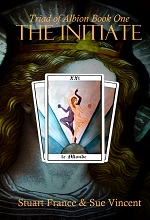


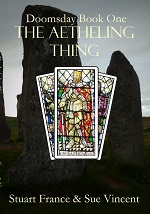
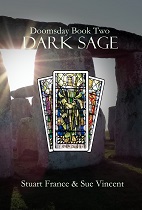






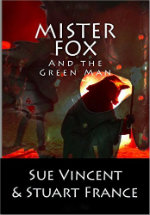
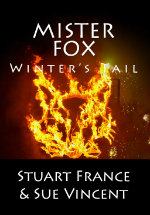


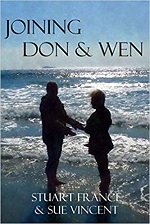





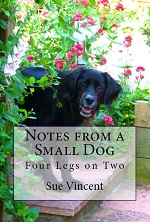





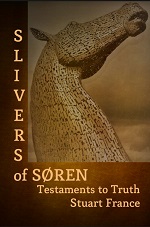

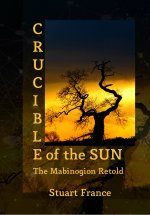
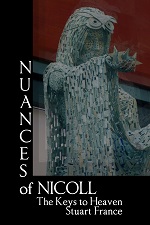

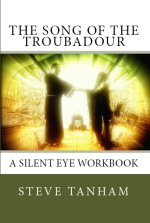
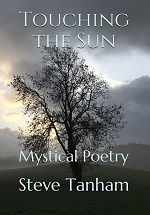

I think each time you read through it has to be looking for only one possible error. You read through once for punctuation, a second time for sentence structure, a third time to make sure you have the right names, another time for plot holes, yet again for repeated words etc etc. The list is a long one. I know my eyes gloss over glaring errors of punctuation, for example, if I’m concentrating on picking out repeated words or phrases.
LikeLike
I spent almost every waking hour for weeks editing and proofing the one I’m revisiting now. So did Stuart.
Several years later, the current edit is showing just how much we missed!
It is a steep learning curve and every writer has their own method for editing… but it is never too late to learn new ones 😉
LikeLike
I know, it’s a never-ending job. The only way I’ve ever got a semblance of order has been to go though looking for only one thing at a time, but other people can maybe cope with more information at once than I can!
LikeLike
I search for specific problems one at once, the go through word by word… then start getting creative about how I check it. And will still miss some details.
LikeLike
Read it too often and the text gets so familiar I start to skip read thinking it looks perfect without actually looking at it at all.
LikeLike
Same here. So I read it backwards 😉
LikeLike
Clever 🙂
LikeLike
It helps 🙂
LikeLike
🙂
LikeLiked by 1 person
I am presently editing one of Anita’s books that she wrote nearly twenty years ago, so not exactly enjoying the process, even though we have better tools now…
LikeLiked by 1 person
I know where you are coming from with that…
LikeLiked by 1 person
And the mainstream publishers have no excuse!
LikeLike
Mainstream have none at all…
LikeLiked by 1 person
Hi Sue, A great piece, thank you. Being a ‘lay’ person with regards to editing, I am always a bit reticent to offer my services as one. However… being as old as Methusaleh (which I may have mentioned before) I have been writing for many years and seem to have a ‘good eye’ for editing (or so I’ve been told). As I Chair for the group Writers’ Ink here in Spain, I’ve now edited quite a few of our writers’ short stories and books. A few years ago, a ‘Professional Editor’ offered one writer her services for €500 and there were no less than nine errors in the first chapter…so that gave me more confidence! I do agree how easy it is for small errors to get through, one way or another. I was lucky enough to win a big prize a few years ago for a short story, but was mortified – on reading the finished anthology – to see that the title read “Worth it’s Salt.” Scream. Who typed that apostrophe? I discovered it was the Spanish secretary in the Ayuntamiento (Town Hall). Oh dear. I could hear the gossip… Who’d be a writer, eh! Love it. x
LikeLiked by 3 people
I would have been crawling up walls with that apostrophe too! x
LikeLiked by 2 people
This is an ongoing problem in the industry as a whole. Traditional publishers are just as guilty.
In the desire to not get books out as quickly as possible, deep editing falls by the way and editing and skipping the proofreading process is a temptation. I just read a book by one of my favorite authors, published by Tor (one of the BIG publishers). The book was so poorly edited that it was clear the author was the only person who had seen the manuscript. This author is publishing four books a year because they are money-makers.
Yet the indie publisher is the one who gets tarred with that brush, and it sticks to us.
You are right that none of us are perfect, but we must bite the bullet and get other eyes on our work and make corrections where needed. Editing is not cheap, but not having a professional edit our work is more costly. We owe it to ourselves and to our readers to put our best work out there, and that means we must not “rush to publish.”
LikeLike
“Yet the indie publisher is the one who gets tarred with that brush, and it sticks to us.” That says it all, really.
I agree, we have to do all that we can to to get a good book out there. Although, for many, it is simply not possible to pay for professional services, there are plenty of ways we can check our own work and, with care, produce a good book, both visually and with regard to content.
On the other hand, I have seen writers with fabulous stories and a great voice just give up because they could not aford those professional services and dare not publish without them.
If the Big Five and renowned writers can get away with mistakes, the indie author who cares enough about their work to put the work in should not be so discouraged that they set aside their dreams.
LikeLiked by 1 person
Great advice Sue! Edit, edit, edit and then edit again 🤨
LikeLike
And then start over 😉
LikeLike
I agree it’s hard to find a book without a typo or two, but when I pick a book that is riddled with errors on every page, I go into editing mode and have a hard time enjoying the content.
I’m happy for these authors that not all readers are so critical.
LikeLike
Tell me about it, Sharon. I find I’m in red pen mode whenever I read a book. Hey, ho! Such are the perils of being a writer.
LikeLike
Inevitable, I suppose…but I was a reader before I was a writer… and I can still lose myself in a story. Unfortuately, I can do that when editing too 😉
LikeLike
I no longer miss the errors, but it has to be bad before they will stop me enjoying a good story or useful information.
LikeLike
I read a book, traditionally published, by a young woman who described herself as an English undergraduate at Oxford University. It was terrible. Riddled with errors–typos, words used wrongly, factual errors, flat characters, unbelievable actions, or lack of, by characters etc. My first thought was “Oxford University has lowered its standards.” Then, “Is she telling the truth?
But a reviewer of one of my books knocked a star off his review, giving it 4, because he found a couple of typos.
It depends so much on the individual reader as to how important a perfect copy is.
I also have a book called ‘Story Trumps Structure ‘ about how you can get away with moe if you have a good story.
But, yes, I think, as authors, we tend to go into edit mode if we find a lot of errors.
Before every book is published on Amazon, (especially self-published) a big sign should flash up saying ‘HAVE YOU EDITED THIS BOOK?’
LikeLike
On the other hand, I love that anyone with a story to tell can now share it… even though not everyone is a natural storyteller or gifted writer.
As handwritten documents become a thing of the past, I fancy that many of the books that would never have seen the light of day a few years ago will provide a cultural window on our era.
LikeLike
I couldn’t have said it better, Sue. The odd error is no biggie. Everyone makes them and even the most expert proofreader won’t catch them all. But it is a bit disconcerting when there seems to be no effort on the part of the author to present a polished up piece of work.
LikeLike
I know several mainstream ‘classics’ where the fault must be squarely laid at the door of the typesetter… and those who okayed the proof copy. Whole chunks of text repeated or paragraphs missing…
But the odd error is going to creep in, and should not detract from the story.
LikeLiked by 1 person
If there are too many errors in a book, I cannot lie, it drives me nuts. If the story itself is really good, I’ll do my best to ignore the errors. I’ve been asked to beta read a few books and a couple of them were riddled with grammatical and spelling errors. I was told not to worry about those as a professional editor would be taking care of that (good thing is what I had to leave as a comment!)
LikeLike
I can’t honestly say errors ruin a story for me, but I do notice them.
LikeLike
Excellent reminder and tips, Sue… Thanks!
LikeLike
With so many working hard to get it right, we sometimes need a bit of encouragement 😉
LikeLike
Back when I was a wee thing and called myself a Reader, I don’t remember typos getting more than an occasional furrowed frown … but now, my eye is forever corrupted by the dreaded editing-lurgy. 😀 … seriously though, I can give a few typos a pass, but I think the book you describe would’ve had me either flinging it at the nearest wall and/or sending it back from whence it came. 😀 … and sending the author a very gently worded email. I figure if something of mine was that bad and I hadn’t seen it (for whatever reasons) I’d like to think someone would (gently) point it out to me.
LikeLike
I would prefer to know too… but I am not sure this particular author would care over much.
LikeLiked by 1 person
Reblogged this on France & Vincent.
LikeLiked by 1 person
I find that sort of thing really distracting. Stream of consciousness doesn’t bother me but typos and spelling do. When it’s occasionally, sure, I get it. When not, sorry. Proofread or you don’t care about quality or your audience. It’s part of the work. I really would rather not have to enjoy a work in spite of its errors when it isn’t part of its purpose. It also indirectly insults the people like you by implying that your care for getting it right doesn’t matter. It implies a disregard for the art of the written word. Maybe this is unfair, and maybe I am clinging to something that matters only to the hopelessly antiquarian. So be it.
LikeLike
Anyone can make mistakes and miss errors, but there is a limit to that beyond which I have to agree, it shows a lack of care and respect, Darcy.
LikeLike
One plus with self-publishing is how easy it is to correct those errors when we find them. I had two people help me with editing my first book, and the first reviews were all about the typos. I went back and made over 300 corrections! But then republished within a few days. Not sure if the book is any better, but far fewer mistakes 😉
LikeLike
It does help to have other eyes than your own on yor work. You know what you meant to write… and the mind corrects it without letting the fingers get involved.
I’ve just checked a manuscript five times… and on the sixth, found an extra space on the very first page. Not a big deal… but it is the principle!
LikeLiked by 1 person
Other eyes do help, but I’ve been coming up with new editing methods and I have been catching a lot of things my “helpers” miss. Yeah, a few small mistakes are no big deal… but the principle!
LikeLike
Same here… but I’ll bet we miss some, even so 😉
LikeLiked by 1 person
Yep, I’m sure we do…
LikeLiked by 1 person
Virgos! And I’m one of them 😬😆😁
LikeLike
Me too 😉
LikeLike
I am a reasonably forgiving reader, Sue, in that I will overlook the odd error while reading. A significant number of errors is another situation altogether though. I do not enjoy poor grammar in a book, it really gets my goat if a book is written in poor English. Editing is vital and I don’t do my own editing. Even with a developmental editing exercise and then a proof read by myself, my husband, my mother and a professional editor, I still find the odd error creeps in.
LikeLike
I am never happy about reading a badly written book, or one where no attempt has ben made to edit or proofread, but I will forgive a lot if the book itself is good.
LikeLike